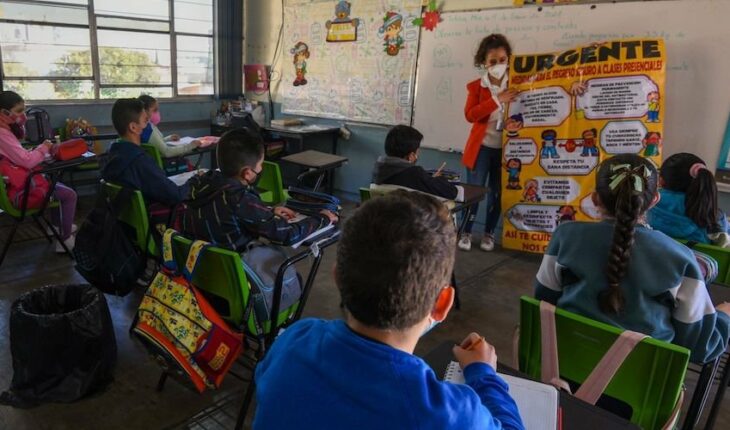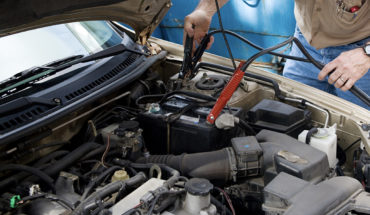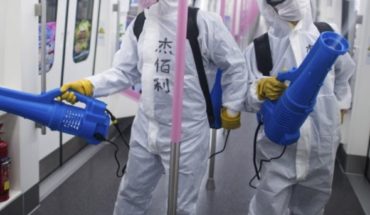The Secretary of Public Education (SEP) is preparing a curricular reform that seeks to eliminate the pedagogical reforms of the administrations of Enrique Peña Nieto and Felipe Calderón from the next school year, but so far there is no clarity on how the new proposal would operate in the classrooms, warn specialists and teachers.
The reform includes changing the subjects for “training fields”, that is, that in the classroom there are no lessons in Mathematics or Spanish separately, but that the teacher poses problems in which different disciplines apply. For example, the topic of climate change could be included in lessons in Biology, Geography, Mathematics, etc. In addition, the new reform proposes that the student learn from his environment.
However, so far it is not clear how the proposal would land in the classrooms, nor the teacher update that this will require. Even given the complex change that is proposed, modifications would be necessary in the training of future teachers in normal schools and in basic education textbooks.
The process of curricular reform began with the presentation of the “Plan and Study Programs for Basic Education”, built by 260 people between July and December 2021. Based on the document they generated, the SEP began in March, the realization of assemblies and dialogues with teachers and specialists from all over the country to collect their comments and proposals in this regard, and for the construction of textbooks.
At the moment, neither in the official documents, nor in the assemblies, has the agency explained how it will apply it in an educational system as diverse as the Mexican one, nor has it presented any manual or guidelines on the update to which teachers should submit. In addition, the proposal for curricular reform is generating criticism among specialists, and uncertainty among teachers.
Lack of clarity
The SEP published in January the document prepared by the experts “Curricular framework and curriculum 2022”, where it explains that teaching would no longer be “fragmented” by subjects, but by five training fields of “languages; scientific knowledge and thinking; ethics, nature and society, and from the human to the communal,” says the document for the first and second grade curriculum.
That is why “the contents cease to respond to a progressive specialization by disciplines, but responds to situations that result from interest or that are relevant to the individual and the community.”
But to begin with, specialists agree, the idea is not new. Since the reforms of President Felipe Calderón and Enrique Peña Nieto, the “disciplinary fields” have been raised with the proposal of “work by project” in the classrooms. But now it is added that these fields are based on community approaches, that is, learning from their environment.
“That concept is so ambiguous that it ends up being a disaster,” as has happened in the Benito Juárez Welfare Universities, which was born under that same precept of community approach, says Vania Bañuelos, pedagogue and teacher in Learning and Educational Policies and primary school teacher.
In addition, “the proposal does not offer minimum guarantees that students acquire these skills and their human right to education would be violated,” warns Carlos Mancera Corcuera, former undersecretary of Planning and Coordination of the SEP, in an article published in the magazine Nexos.
“According to the proposal, the expectation is that students of all grades leave the classroom to go to the community in order to observe and collect information that will serve as a basis for their educational projects. (but) The observation of what happens in the community-territory as a starting point for learning will tend to limit education throughout all basic education, “he says in his article “Improvised curriculum and educational impoverishment”.
For Ángel Díaz Barriga, emeritus researcher at the UNAM, this proposal is about “community pedagogy”, which he defines as “an enormous challenge, but it is the first educational change proposed by this country”, because although in the previous reforms there was talk of “training fields”, in practice it was still taught by subject.
However, he agrees that ‘the hows’ are missing. While it will be a challenge for primary education, in secondary it could mean a problem, since if teaching will be from problem solving combining different disciplines in class, how will it affect teachers who were trained to teach only one specific subject? and in addition, they are hired per class hour of their subject. That’s not resuElto, for example, warns Díaz Barriga.
Books and the magisterium
Alma Maldonado, a researcher at Cinvesatav, explains that a change like the one proposed would involve intervening in the training of teachers from the Normal School, in addition to the design of textbooks of which there is no clarity so far. The only thing that exists is the realization of “assemblies” for the design of textbooks, headed by Marx Arriaga, director of Educational Materials of the SEP.
The proposed change would also involve modifying “the way you are training teachers and training current ones,” agrees Marco Fernández, a researcher at Tec de Monterrey and Mexico Evalua. “For example, the reform proposes to eliminate qualifications and rather record ‘levels achieved’, but that would involve training teachers to do something like this, and to adapt to pedagogies that meet the expectations of changes in curricula.”
“The teaching profession is not prepared for such a drastic change because the educational model that the current government intends to implement breaks with the previous ones.” For example, the discourse is “to break with neoliberalism and individuality, to rescue the collectivity. That sounds good in theory, but how do you put something like this into practice first among teachers, and how to do it in violent areas of the country,” warns Abelardo Corro, a normal school teacher.
Saúl Pérez, a primary school teacher, says that in his school “we have no idea” about the changes proposed by the SEP. So far, he has not received any official information on teacher training or guides. While the SEP has organized “assemblies” to report on the changes it is actually about exposition and a bit of debate, but not clear instructions for application in classrooms.
Nubia Ángeles, head of content at LEGSA, an educational platform for teachers, says this is a worrying issue because in practice, it has not been discussed at all. “The teachers complained about Peña Nieto’s model, but now they are doing it the same. The assemblies are only serving to make believe that it is being discussed, but the reality is that it is not,” says Nubia.
One of the worrying aspects, he says, is “how will they evaluate the training fields? Will they only leave it to the master’s consideration? That’s not yet clear.” In addition, how they will implement a new curriculum without even having evaluated the effects of the pandemic. “If they don’t have the foundations, why implement a new model right now?”
What we do at Animal Político requires professional journalists, teamwork, dialogue with readers and something very important: independence. You can help us keep going. Be part of the team.
Subscribe to Animal Político, receive benefits and support free journalism.#YoSoyAnimal




